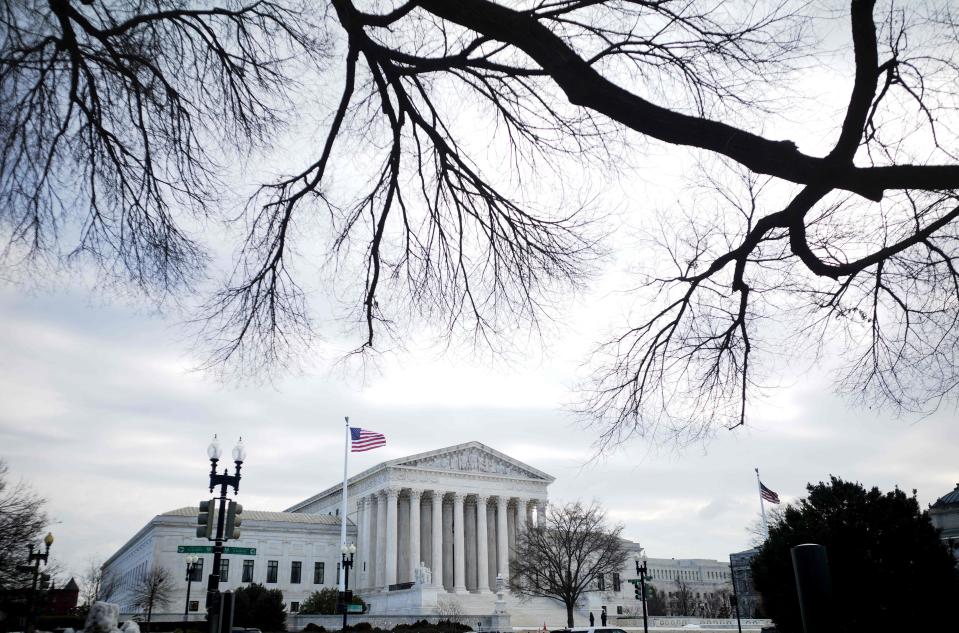Supreme Court leans against Boston decision to stop Christian flag flying over City Hall
- Oops!Something went wrong.Please try again later.
WASHINGTON – The Supreme Court on Tuesday appeared to be leaning against a program in Boston in which the city raises the flag of third-party groups outside City Hall to promote diversity and other messages but declined to fly a Christian flag.
Boston argued that the flags on its flagpole are government speech and that city officials may choose the messages they want to convey. Justices questioned whether the city relinquished control of that message by approving just about every other request to fly a flag except for the one made by the religious group in 2017.
"Is it consistent with the principles of the free speech clause if you say anybody can speak, except we are going to monitor what is said and we're not going to allow religious speech?" Associate Justice Samuel Alito asked. "The court has said you can't do that."
The religious group that made the request, Camp Constitution, argued that Boston's flagpole is a public forum, a concept in First Amendment law used by courts to help analyze when the government may regulate speech on public property. The government can't restrict speech based on a speaker's viewpoint in a public forum.
Justices questioned how far Boston would have to go to accommodate third-party groups if city officials are not permitted to choose the flags on a flagpole that is a public forum. Would cities be required to fly a Nazi flag? Or one celebrating al-Qaida?
"To an ordinary observer walking past City Hall, if you see a flag on the pole, you think it's City Hall speaking," said Associate Justice Sonia Sotomayor, who took part in the arguments Tuesday remotely from her chambers at the Supreme Court building.
Flags: Supreme Court to debate if Boston may stop a Christian flag at City Hall
Cruz: High court to hear challenge from Sen. Cruz to campaign finance law
Conservative and liberal members of the court indicated the dispute could have been settled relatively easily with a few minor changes to Boston's policy, such as having city officials more involved. That was similar to the position taken by the Biden administration, which supports Camp Constitution.
"If you look at the lack of control over this flagpole, it's hard not to think of it as a public forum," said Associate Justice Elena Kagan, a member of the court's liberal bloc.

In other contexts, the Supreme Court has looked favorably on claims of religious freedom in the face of assertions of the requirement to keep government and religion separate. In 2019, the court ruled that a Latin cross on government property outside Washington did not have to be moved in the name of church-state separation. In 2014, the court upheld the practice of offering prayers to open government meetings, even if those prayers are overwhelmingly Christian.
But a 5-4 court held in 2015 that specialty license plates promoting everything from "Choose Life" to "Conserve Water" could prohibit images such as the Confederate flag because license plates are government speech. The decision drew a sharp dissent from Alito, joined by Chief Justice John Roberts and two others who have since left the court.
Boston's guest flag program is relatively rare. Perhaps anticipating lawsuits, more than 7 in 10 cities do not fly third-party flags, according to a survey by the International Municipal Lawyers Association.
The Supreme Court will hand down its decision this year.
This article originally appeared on USA TODAY: Supreme Court questions Boston policy barring flying of Christian flag

